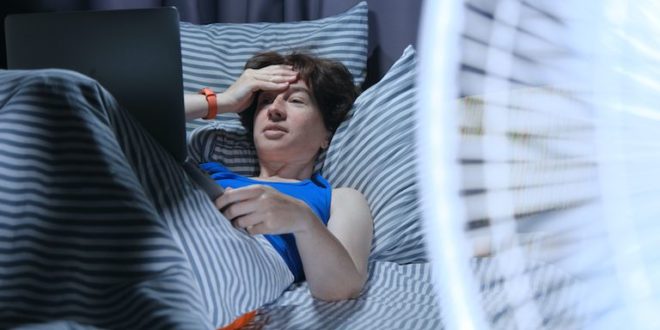According to Healthline, A good night’s sleep is just as important as regular exercise and a healthy diet.
Research shows that poor sleep has immediate negative effects on your hormones, exercise performance, and brain function.
Unhealthy daytime habits and lifestyle choices can leave you tossing and turning at night and adversely affect your mood, brain and heart health, immune system, creativity, vitality, and weight.
1. Manage your worries
There are things you can do in your day to help manage your worries, like talking to someone you trust and switching off from the news.
If you often lie awake worrying, set aside time before bed to make a to-do list for the next day – this can be a good way to put your mind at rest.
2. Don’t eat late in the evening
Eating late at night may negatively affect both sleep quality and the natural release of HGH and melatonin.
Don’t go to bed hungry or stuffed. In particular, avoid heavy or large meals within a couple of hours of bedtime. Discomfort might keep you up.
3. Avoid Caffeine and Nicotine
The stimulating effects of nicotine and caffeine take hours to wear off and can interfere with sleep.
4. Exercise
People who exercise regularly sleep better at night and feel less sleepy during the day. Regular exercise also improves the symptoms of insomnia and sleep apnea and increases the amount of time you spend in the deep, restorative stages of sleep.
Regular physical activity can promote better sleep. However, avoid being active too close to bedtime.
Spending time outside every day might be helpful, too.
5. Don’t drink alcohol
Having a couple of drinks at night can negatively affect your sleep and hormones.
Alcohol is known to cause or increase the symptoms of sleep apnea, snoring, and disrupted sleep patterns
6. Take a relaxing bath or shower
A relaxing bath or shower is another popular way to sleep better.
Studies indicate that they can help improve overall sleep quality and help people — especially older adults — fall asleep faster
7. Create a restful environment
Simple things can have a big impact when it comes to falling asleep and staying asleep.
However, It’s generally easier to drop off when it’s cool, dark and quiet – but the right sleep environment is personal, so try different things and see what works for you.
8. Limit daytime naps
Long daytime naps can interfere with nighttime sleep. Limit naps to no more than one hour and avoid napping late in the day.
 Home Of Ghana News Ghana News, Entertainment And More
Home Of Ghana News Ghana News, Entertainment And More





